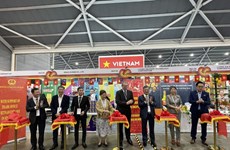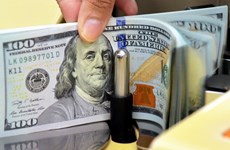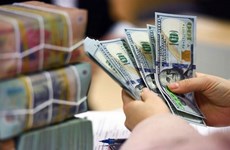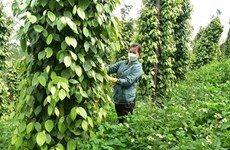Vietnam urged to identify strategic industry
A senior economist from Japan has advised Vietnam to determine a
strategic industry that can easily develop and increase outputs once the
nation’s per-capita incomes rise, as part of its economic strategy.
A senior economist from Japan has advised Vietnam to determine a
strategic industry that can easily develop and increase outputs once the
nation’s per-capita incomes rise, as part of its economic strategy.
Sugiyama Hideji, Vice President of the Shokochukin Bank, made the suggestion at a symposium held in Hanoi on July 27 that aimed to share Japan ’s experience in policy making for industry and supportive industries and help Vietnam solve its own problems.
The expert from Asia’s most developed economy recommended petrochemistry, household utensil manufacture, electrical appliances, apparel and agriculture as industries that Vietnam should consider developing as strategic industries.
In an effort to export farm produce, Vietnam should intensify investment in infrastructure facilities such as cold stores and cold chains, the senior banker added.
He emphasised four basic conditions, namely capital, technology, human resources and a distribution system, that local small and medium-sized enterprises (SMEs) must plan for in their development strategies.
It is necessary for the country to establish credit institutions to provide soft loans for SMEs and set out technology goals for each and every industry, he said.
For its part, each enterprise should have its own targets in human resource development that include issuing diplomas or certificates for each staff member after training courses and considering promotions or salary rises on this basis, Hideji explained.
He emphasised that the developing country has to work out overall medium and long-term development plans in this area and conduct surveys on enterprise circles, from their workforces to technology, outlets and material supply, before making a policy.
For his part, Do Hoai Nam , President of the Vietnam Institute of Social Sciences, highlighted the important role played by supportive industries in the country’s industrialisation process.
He urged participants to focus discussion on Japan ’s experiences in developing material infrastructure, a legal system, social foundations and other conditions for supportive industries to grow.
Nam ’s institute and the Japanese International Cooperation Agency (JICA) were co-sponsors of the event./.
Sugiyama Hideji, Vice President of the Shokochukin Bank, made the suggestion at a symposium held in Hanoi on July 27 that aimed to share Japan ’s experience in policy making for industry and supportive industries and help Vietnam solve its own problems.
The expert from Asia’s most developed economy recommended petrochemistry, household utensil manufacture, electrical appliances, apparel and agriculture as industries that Vietnam should consider developing as strategic industries.
In an effort to export farm produce, Vietnam should intensify investment in infrastructure facilities such as cold stores and cold chains, the senior banker added.
He emphasised four basic conditions, namely capital, technology, human resources and a distribution system, that local small and medium-sized enterprises (SMEs) must plan for in their development strategies.
It is necessary for the country to establish credit institutions to provide soft loans for SMEs and set out technology goals for each and every industry, he said.
For its part, each enterprise should have its own targets in human resource development that include issuing diplomas or certificates for each staff member after training courses and considering promotions or salary rises on this basis, Hideji explained.
He emphasised that the developing country has to work out overall medium and long-term development plans in this area and conduct surveys on enterprise circles, from their workforces to technology, outlets and material supply, before making a policy.
For his part, Do Hoai Nam , President of the Vietnam Institute of Social Sciences, highlighted the important role played by supportive industries in the country’s industrialisation process.
He urged participants to focus discussion on Japan ’s experiences in developing material infrastructure, a legal system, social foundations and other conditions for supportive industries to grow.
Nam ’s institute and the Japanese International Cooperation Agency (JICA) were co-sponsors of the event./.













